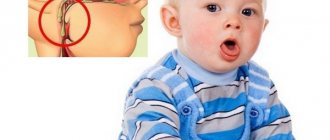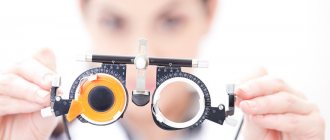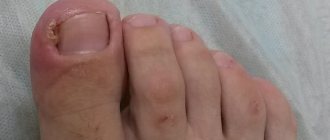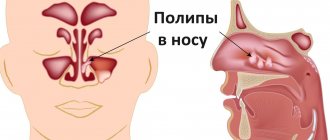Signs of a weakened immune system
The deterioration of the immune system can make itself felt at any age. In this case, both men and women will experience approximately the same symptoms.
Signs that the body’s “defense” has become ineffective for some reason:
- Loss of strength and constant feeling of weakness.
- Frequent headaches for no apparent reason.
- Increased irritability and depression.
- Drowsiness even with enough sleep.
- Brittle hair and nails, dull skin.
- Frequent and prolonged ARVI. Normally, a child can suffer from acute respiratory viral diseases up to 4 times a year, an adult – 2-3 times.
- Enlarged lymph nodes.
- Frequent pustular skin lesions.
- Tuberculosis infection in any form.
- Fungal infections of the skin, nails and mucous membranes.
- Slow wound healing.
- Relapses of diseases of the urinary system, respiratory tract and sinuses.
- General weakness and pallor of the skin.
All of the listed symptoms and signs usually appear due to decreased immunity.
THIS IS INTERESTING: If we are talking about the increasing frequency of colds, then men, as a rule, suffer them more severely than women. According to one version, representatives of the stronger sex have a more pronounced immune response, so the male body attracts more cells to fight foreign particles. Hence the more noticeable painful sensations.
Why is vaccination needed?
Viruses, including “familiar” ones such as the influenza virus, are pathogens that have an extremely high ability to change. And while the immune system “establishes” the production of protective antibodies to fight them, the person develops a disease. After vaccination, protective antibodies are formed, which allow the body to prepare in advance for an unwanted, but quite likely encounter with a specific virus. It is no longer possible to “catch” the immune system by surprise. Therefore, to prevent a number of dangerous infections, vaccinations are the most effective way. But the difficulty is that there are a lot of causative agents of colds, more than 200 types, and it is unrealistic to develop a vaccine for each. The immunity that develops after each acute respiratory viral infection is usually short-lived.
And the large number of pathogens, their variability and high contagiousness provide the prerequisites for recurrent diseases. Fortunately, there are modern medications that are effective both for the treatment and prevention of subsequent acute respiratory viral infections.
Causes of decreased immunity
Both external and internal factors can break through the body’s defense system - for example, a person’s lifestyle and existing diseases.
External factors include:
- Unbalanced diet;
- Nutrient deficiency or excess;
- Physical inactivity or, conversely, too intense physical activity;
- Sleep disorders;
- Constant stress;
- Smoking, using drugs or drinking too much alcohol;
- Prolonged stay in an area with increased background radiation;
- Poisoning by chemical compounds;
- Constant exposure to industrial emissions.
Disorders in the functioning of organs and systems, chronic or acquired diseases can also weaken the immune defense:
- Blood diseases (lymphoma or leukemia);
- Impaired intestinal absorption;
- Liver damage;
- Impaired kidney function;
- Immunodeficiencies, including HIV;
- Oncological diseases;
- Intestinal parasites and helminthic infestation;
- Chronic infections;
- Severe injuries and operations;
- Long-term antibiotic therapy;
- Chemotherapy.
In addition, immunity may decrease due to physiological conditions: hormonal changes in adolescents, pregnancy and menopause.
3. Symptoms and diagnosis
The main manifestation and consequence of immune weakness is a decrease in the body’s protective functions, i.e. its ability to resist and cope with pathogenic factors. A person begins to get sick with “colds” and viral diseases; his chronic pathology is aggravated, fungal cultures and the herpes viruses and HPV (human papillomavirus), which are extremely common today, are activated; Even minor wounds do not heal for a long time and often fester, and the condition of the skin worsens; Any disease progresses more severely and with a greater likelihood of complications, and in the most dangerous cases, the growth of a cancerous tumor may “start”.
Immune weakness is diagnosed clinically, anamnestiically and laboratory. In cases where there is reason to suspect damage to one of the above immune defense organs, an appropriate examination is prescribed.
About our clinic Chistye Prudy metro station Medintercom page!
Diagnosis of weakened immunity
“Damages” in the functioning of the immune system may not be felt for a long time. And, in the meantime, they will increasingly undermine the body’s most important mechanisms.
If a patient suspects a malfunction of his immune system, he should consult an immunologist or an anti-aging medicine doctor. During the preliminary examination, the doctor will collect the patient’s medical history, listen to complaints, and evaluate the condition of the lymph nodes, oral mucosa, as well as skin, hair and nails.
Tests will then be ordered. A sample list of them:
- General blood analysis. It may show low hemoglobin levels, bleeding disorders and malignant increases in concentrations such as white blood cells. All this may be partly due to a decrease in the body's resistance. This test also determines the erythrocyte sedimentation rate (ESR). The higher it is, the more intense the inflammatory process in the body, and the weaker the immune system reacts to it.
- Immunogram. This blood test can show the state of the immune system. To do this, the number of cells of the immune system is taken into account, as well as the interaction of lymphocytes, leukocytes and other cellular substances. Circulating antibodies are also detected. The immunogram must be deciphered by a doctor.
- Radioimmunoassay (isotope) analysis. In some cases, it may be necessary to study lymph, as well as samples of cerebrospinal fluid and lacrimal gland secretions, since not only white blood cells are responsible for immunity.
As a rule, these tests are done on an empty stomach and no special preparation is required.
How to strengthen the immune system of an adult?
If problems with immune defense have just begun, you can help your body on your own. To the question “How to increase immunity for an adult?” several answers, because this requires an integrated approach.
- Quit smoking and alcohol. Bad habits, due to their toxicity and irritating effects on the intestines, greatly undermine the immune system. Therefore, to strengthen it, you will have to adjust your preferences.
- Diversify your diet. The diet must contain the required amount of protein products, as well as cereals, vegetables and fruits, which will provide the body with fiber and essential nutrients, especially in the off-season. It is also important to maintain a drinking regime and drink an average of 30 milligrams of water per kilogram of weight. After all, it is in the aquatic environment that many important internal reactions take place.
- Increase physical activity. A sedentary lifestyle promotes weight gain and reduces ventilation. All this leads to weakened immunity. To increase your protective potential, you need to move more: take breaks to warm up at work, walk in the fresh air and engage in sports - the kind that you like and are able to do. Regular training normalizes the body's metabolic processes and, of course, strengthens its “defense.”
- Adjust your sleep schedule. For strong immunity, it is important to go to bed no later than 22-23 hours and sleep 7-8 hours every day. The fact is that the hormone melatonin, which is responsible for sleep, is closely related to many processes occurring in the body, as well as to the quality of the immune system.
- Temper yourself. This is an effective way to train your defense system. Moreover, it is not necessary to douse yourself with cold water or wipe yourself with snow - it can be a contrast shower, as well as air baths. The main thing is that this is consistent and gradual hardening. Of course, they should not be practiced if, for example, acute respiratory diseases occur.
- Take vitamin complexes and dietary supplements. However, before that, it is recommended to undergo a series of tests to identify deficiencies of vitamins and other nutrients. Taking them independently and at random is extremely undesirable - this can have the opposite effect and lead, for example, to excessive accumulation of vitamins. And some of them are toxic to our body in large quantities.
- Go to the bathhouse. Going to the steam room stimulates blood circulation and improves lymph flow. This helps eliminate chronic foci of infection, as well as eliminate toxins. In addition, the bath accelerates the synthesis of immunoglobulins. However, before choosing this option to boost the immune system, you need to exclude the presence of contraindications for visiting the bathhouse.
Of course, all these methods will work in the absence of chronic diseases. And their treatment should be strictly under the supervision of a doctor. Compliance with these recommendations can also prevent weakening of the immune system.
Anti-aging medicine methods
“In fact, there is no need to boost the immune system - it itself recovers very well if the factors that constrain it are removed: glycation (excess sugar in the body), excessive accumulation of toxins in the body, as well as viruses and bacteria, which the immune system is constantly forced to fight, and , in addition, an increase in the number of cancer cells. All these are serious shackles on the immune system, preventing it from working normally. When we remove them, it starts working on its own without failure.”
Dorina Alekseevna Donich
Doctor of Medical Sciences, obstetrician-gynecologist, doctor of bioregenerative and anti-aging medicine
Experience: 25 years Social networks: Facebook, Instagram
Doctors of anti-age medicine, when problems with immunity arise, strive to balance the condition of the body as a whole.
The immune system is divided into humoral and cellular. Cellular immunity, like any cells in our body, gradually ages. And if you carry out an anti-aging program for total restoration of the body, immune cells will be renewed automatically.
If a patient comes to see an anti-aging medicine doctor with complaints about a decrease in the body’s defenses, the doctor will prescribe an examination to determine the following parameters:
- Complete blood count with leukocyte formula;
- Level of basic immunoglobulins;
- Markers of oxidative stress and detox (homocysteine, superoxide dismutase, coenzyme Q10, glutathione, etc.).
This will allow you to understand what exactly is happening with the immune system, and the doctor will draw up an action plan.
How exactly does anti-aging medicine strengthen the immune system?
Schematically, the goals of medical anti-age tactics look like this:
- Correction of the level of oxidative stress, which is closely related to the oxidative effects of free radicals on tissues.
- Reducing glycation, namely the level of sugars and destructive molecules AGE and RAGE.
- Strengthening the work of mitochondria - organelles that produce energy in cells.
- Restoring the function of the thyroid gland, on which the quality of the immune system greatly depends.
- Reduction or elimination of foci of chronic infections, including bacterial and viral ones.
- Improved sleep quality. This is one of the key points, since during the day immune cells go out into the “field”, into the intercellular space and work to protect us from viruses and bacteria. And at night they return to the lymph nodes, where they must be restored. People with disrupted sleep will inevitably have poor immunity. Therefore, it is very important to restore wakefulness and sleep, as well as its quality, especially during the virus season. This automatically affects the restoration of the immune system.
Doctors of anti-aging medicine, if necessary, can use immunomodulator drugs. However, the main emphasis is on eliminating factors that interfere with the normal functioning of the immune system.
Drug treatment
Immunity disorders sometimes require correction with special medications. However, it is important that they affect exactly the “link” in which the breakdown occurred. An experienced doctor will not allow taking immunomodulators “just in case,” since this is associated with the risk of developing autoimmune aggression.
Drugs to correct the immune system work in different ways:
- Bacterial immunomodulators. Their mode of action is similar to that of vaccines. Dead or greatly weakened bacteria are introduced into the body, and antibodies are synthesized in response.
- Immunostimulants based on nucleic acid. They activate white blood cells, and their fight against infection becomes more effective, and the affected tissues heal faster.
- Interferons. The essence of the work of these drugs is in proteins that block the development of infection.
- Interferonogens (interferon inducers). They do not contain protective proteins, but stimulate their production by the body.
- Immunoglobulins. The principle of their action is to neutralize most pathogens of infectious and parasitic diseases.
- Preparations of the thymus (thymus or thymus gland). They are obtained from the organs of domestic animals. Such medications are prescribed for severe diseases - they activate cellular immunity.
- Herbal preparations. Some plants can increase resistance to infections, but they should also be prescribed by a doctor because there is a risk of allergies.
In addition, various vitamins and dietary supplements are often used to boost immunity. Their task is to fill nutritional deficiencies and normalize biochemical processes in the body.
1.General information
Immune system, immunodeficiency, immune factors, autoimmune disorders, immunomodulators, immunity in the sense of parliamentary or diplomatic immunity... In short, we hear about immunity all the time. And even if the biological mechanisms of our natural defense are not completely clear to us, a weakened or decreased immune system is intuitively perceived as something unhealthy and unsafe.
This is true. The immune system is a complex multi-level complex of protection both from foreign pathogenic microorganisms and from one’s own abnormal cells. A number of blood cells - lymphocytes, eosinophils, monocytes/macrophages, neutrophils, etc. - are involved in the immune response to the appearance of such objects, known or potentially dangerous. It is interesting that evolution has built our defense in depth on approximately the same principle that underlies the functioning of the World Wide Web - distributed, complementary control in the absence of a single control center - which makes it extremely difficult to disable the entire system as a whole (it is noteworthy that in In both cases, the greatest damage is caused by viruses). The organs of immune defense are the bone marrow, the thymus, the lymphatic system with its largest node - the spleen, and other (for example, intestinal) structures. Innate immunity carries the genetic memory of the Homo Sapiens species about the main threats and methods of counteraction; adaptive - he is able to remember and use in the future the experience of successfully eliminating new aggressors (this is how immunity to a number of contagious diseases is formed).
A decrease in immunity can be likened to a faulty security alarm: either the alarm signal will not be heard, or it will be followed by an inadequately weak, insufficient reaction. This is an abnormal, dangerous situation that requires as quick “repair” as possible, which can develop in the body under the influence of many reasons and conditions.
A must read! Help with treatment and hospitalization!
Brief conclusions
- Immunity can decline at any age.
- This can happen both for internal reasons and under the influence of external factors.
- There are ways to strengthen the immune system on your own, but only if the body works without serious disruptions.
- To restore the body's defenses, you can contact an immunologist or a doctor of anti-aging medicine.
- The essence of the doctor’s anti-age approach is to eliminate various “shackles” on the immune system.










